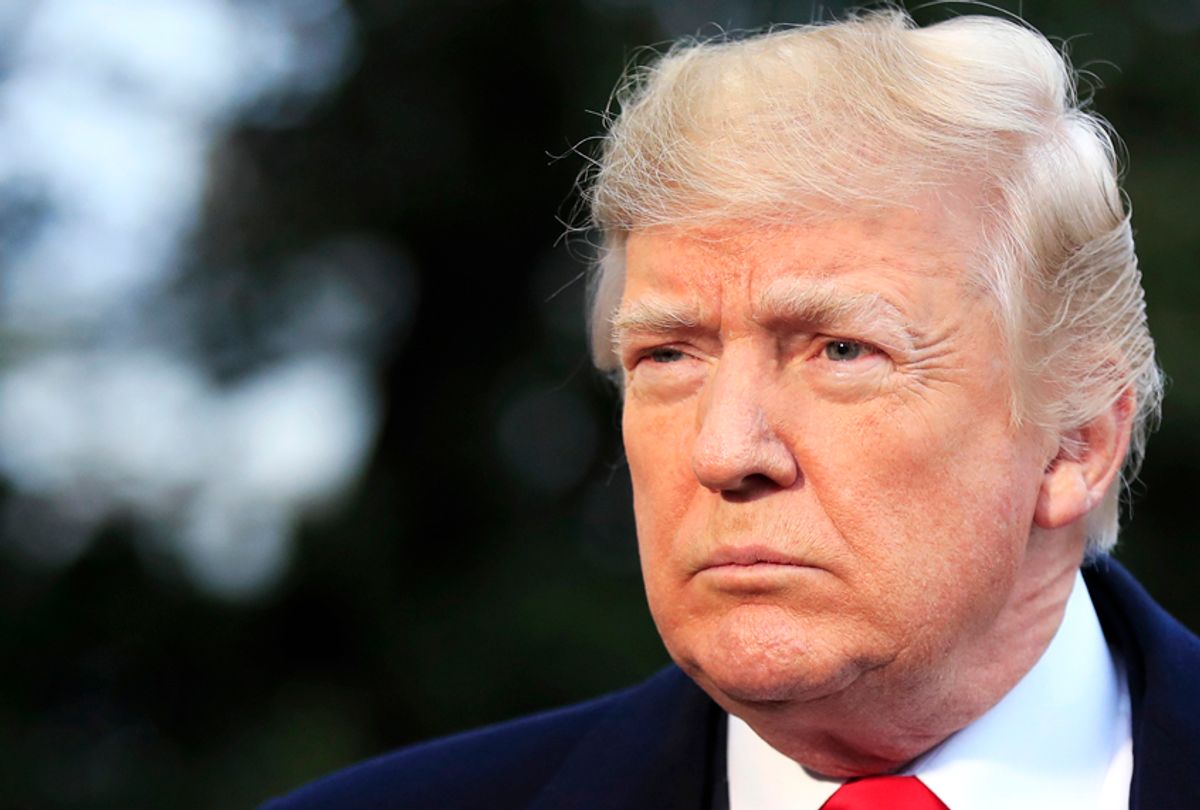 OK, the President of the United States doesn’t think he is a racist.
OK, the President of the United States doesn’t think he is a racist.
But, apparently, he does forcefully believe in favoring white-majority countries of origin for immigrants over black- or brown-majority countries, however vulgar his language about that position.
And, as painfully noted by every news outlet in the last few days, he has a history of remarks and actions that others would say show a pattern of racism, even if he doesn’t want the label. These include calling Mexicans “rapists,” finding goodness among the neo-Nazis who descended on Charlottesville, defending Confederate statues, attacking the ethnicity of a federal judge ruling against him, declaring that all Haitians have AIDS and all Nigerians live in huts. It runs all the way back to his actions as a real estate landlord in New York City.
Nevertheless, he just doesn’t like the label.
Of course, the easiest way to avoid the label is not to hold racist opinions. But, we can play the game: What label would Trump prefer while still reflecting his racist druthers?
How about “biased”? “Unevolved?” “Unintelligent, unknowing and uncaring”? “Someone who always favors a white individual for immigration approval over an individual of color”?
Trump would argue that he is a defender of borders and committed to our safety. How that correlates with other countries’ poverty or crime rates is unclear.
The preferred backbone of the White House immigration policy is that this country should weigh the individual circumstances and skills of each would-be immigrant, vetting for terrorism, yes, but moreso finding people who would contribute to the American economy. OK, how does dismissing whole countries of origin, as the president did about El Salvador, Haiti and various African countries, help in the examination of individuals from those countries?
The answer, of course, is that it doesn’t. Instead, the president said he would prefer immigrants from countries like Norway, who, of course, happen overwhelmingly to be white. It is not the only time he has said that he wants more of our immigrants to be from Western Europe and to be well-skilled, well-educated, English-speaking candidates who would walk into upwardly mobile jobs immediately.
What strikes me as odd is our predilection to argue over the labels rather than what is really at issue. So, the argument over the fate of upward of 800,000 Dreamers, or immigrants brought here as children, is discussed as if these people are a singular group with uniform skills who are being offered “amnesty.” That’s the Right’s label for a permanent resolution for the uncertainty that has governed these people’s lives.
I have no problem accepting “amnesty” as a label that is intended to be dismissive, but more importantly why aren’t we focused on creating actual means for the Dreamers, or for that matter, the 11 million undocumented people, to find a path to citizenship after a lifetime of work, service and tax-paying participation in American life.
The arc of disagreement that built again this week between conservative Republicans and Democrats and between senators carrying a bipartisan agreement and the president, is not really about labels. Rather, it is about a fundamental view about whether to create enforceable and understandable paths of immigration that match the realities of having a border that people breach illegally. It is about whether we want immigrants, and will go out of our way to make the processes simpler.
Last Tuesday started with a PR show by the president, who talked about adopting a solution to the Dreamer/DACA problem with “a bill of love,” agreeing to sign whatever bipartisan bill came forward that reflected what he called four basic principles of border security. On Thursday, six bipartisan senators arranged with the White House to come by and brief the president on having achieved exactly that, but the president also invited other conservative Republican congressmen who want no part of “amnesty” for any undocumented immigrants or those Salvadorans and Haitians who had been allowed to stay under temporary protection status. In “tough language,” Trump rejected the bipartisan deal, apparently at the instigation of the conservatives, and launched his attack on particular countries of origin that are non-white.
Since then, there have been days of haggling about which vulgarity the president used, and a lot of hand-wringing about how a failed DACA deal imperils the ability of the federal government to operate after this Friday, the deadline for a budget agreement. In this scenario, DACA matters because Republicans will need Democratic support for a budget more than because it affects the daily life of hundreds of thousands of individuals.
The Washington Post, in reporting that replayed the meetings, said that when Trump spoke by phone with Sen. Richard J. Durbin (D-Ill.) last Thursday morning, he expressed pleasure with Durbin’s outline of a bipartisan immigration pact and with the idea that Sen. Lindsey O. Graham (R-S.C.) was in agreement. But when they arrived at the Oval Office, the two senators were surprised to find that Trump was far from ready to finalize the agreement. He was “fired up” and surrounded by hard-line conservatives such as Sen. Tom Cotton (R-Ark.), who seemed confident that the president was now aligned with them, according to one person with knowledge of the meeting. Trump told the group he wasn’t interested in the terms of the bipartisan deal, shrugging off suggestions from Durbin and others, calling nations from Africa “shithole countries,” denigrated Haiti and grew angry.
By yesterday at Senate hearings over Homeland Security departmental operations, Secretary Kirstjen Nielsen found herself on the defensive with Senators Durbin, Graham, Patrick Leahy (D-Vt.) and Cory Booker (D-N.J.), in particular, who delivered an emotional appeal about how words from the Oval Office affect people of color. The clear villain of the piece is Trump himself, with forgetful Republicans, including Nielsen, running a close second.
Let’s not forget that anti-immigration policies, as well as those that appear to support more jobs for a “forgotten” white minority, are hallmarks of Trump’s frequently repeated campaign promises. Thus, the Wall paid for by Mexico, and some of those actions and remarks that fall into the pattern that has come to be lumped together under a label of “racist.”
Moral of the story: Label or not, those who accepted jobs to carry out the U.S. Constitution should be able to focus on the real issues of the day. They should be able to watch out for citizens over their own self-interest, their provocative campaign promises or the concerns of their political donors.




Shares